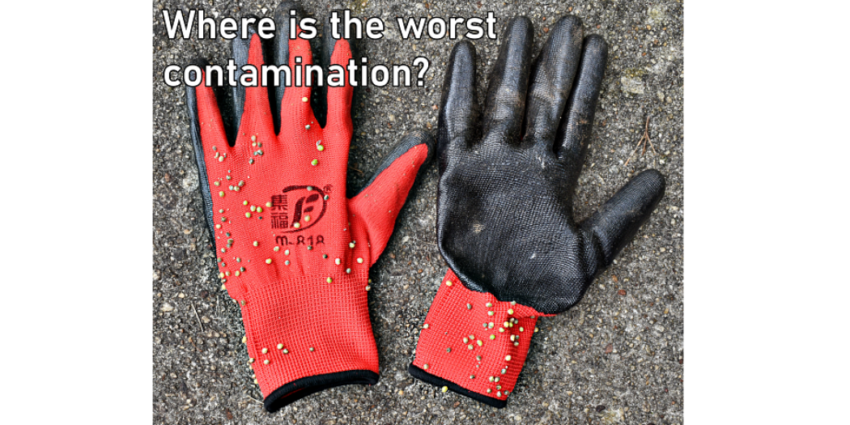Yes, you can see the seed pods of Catchweed Bedstraw (Galium aparine), but do you see the bacteria?
First, a story. I started teaching at a brand-new high school when I moved to Georgia. Of course, we had a football team, but something strange started happening. Before the season started, while in practice, many of the boys got skin infections where the helmet abraded their necks. One even got an infection in his nose! Simultaneously, I was teaching biology and had my students start “hay infusions” by putting grass clippings into empty jars with distilled water to see what microorganisms grew. This is a common lab; I have done it before for fifteen years in other schools. When I checked the jars for organisms, I expected amoebas and paramecium; but I saw endospore bacillus! There are many, but they are typically BAD. Perhaps tetanus, botulism, or some other terrible bacterium. I went to the department chair for an explanation; he was mystified that I was perplexed, “Margaret, this was a farm, a pasture; they had horses and cattle here.” OH!
And the mysteriously infected football kids were from the same cause. The doctors realized the soil of the practice field was the problem, and the school brought fresh soil to cover the field. They also increased hygiene, and the infections stopped.
Which leads to our subdivisions; what were they in the past? Should we take precautions?
Scientific studies on gardening gloves and contamination tell us a few things.
- Wear your gloves. Bacteria enter through the tiniest cuts of the skin.
- Gloves with nylon liners or rubber coatings offer more protection than canvas gloves.
- Always wash hands after working in the garden, even if gloves are worn.
- Have more than one pair and throw them in the wash with your gardening clothes.
- Do not use manure in your garden unless it has been heat treated for sterilization.
- Besides wearing gloves, gardeners should be up to date on tetanus boosters as Clostridium tetani bacteria live in the soil and enter the body through breaks in the skin. To reduce the risk of exposure to Toxoplasma gondii, potentially harmful parasites associated with cat feces, pregnant women should always wear gloves when gardening.
- Contamination has been found on the steering wheels of gardening equipment. Always wear gloves or wipe down the steering wheel periodically.
- Use separate rubber gloves different from your garden gloves for applying insecticides or herbicides to prevent accidental contamination of your garden with the chemical.

